People have been inventing myths about food for about as long as they’ve been preparing meals. Common culinary folklore can range from relatively sensible cautionary tales to far more inventive notions—and damn, can they be silly.
Recently, we asked Atlas Obscura readers to send us the most memorable food myths they’d ever heard, and we got hundreds of amazing responses. Did you know, for instance, that you aren’t supposed to eat tuna and ice cream on the same day? Or that eating peanuts at a NASCAR race is bad luck? And don’t even get us started on all the ways milk can supposedly be turned into deadly poison when combined with other foods.
Take a look at some of our favorite bits of global food folklore below. It just might change the way you look at persimmons. And if you have a culinary myth of your own that you’d like to add, head over to our new community forum to continue the conversation.
Eat Your Vegetables (or Don’t)
“Cut off the tips of cucumbers and rub them against the rest of the cucumber to remove the poison.” — Kimberley, Montreal, Quebec
“That reheated spinach produces dangerous levels of nitrate that could even kill you. My mother told me this. I like spinach, so rarely do we have leftovers but still, I hate throwing food away. But in this case…” — Mascha, The Netherlands
“If you eat mushrooms late in the day, you’ll have crazy dreams that night. My mother [got it] from her mother before her, etc. It sticks with me because it seems to have some truth to it… or else I’ve attributed any weird dreams that I may have had that night to any mushrooms I’ve eaten earlier that day, because of what she said!” — Stacey Coy, Conroe, Texas
“That eating carrots will improve your vision. As a child, I recall my grandmother telling us to ‘eat all your carrots if you want to have good eyesight,’ followed with ‘you never see a rabbit wearing glasses!’” — Scott Carey, San Francisco, California
“If you don’t wash inside and behind your ears, potatoes will grow out of them. My grandmother told us this as she checked our ears for cleanliness. It was so scary and she seemed so sure of it, that I believed it for too long!” — Peg Steinmann, Cincinnati, Ohio
“A hot potato placed on the head will cure a headache. It was an old Mexican folk medicine remedy I heard about from kids in school. Seemed funny. As an adult, suffering from migraines, I found salt helped me. My infusion of choice was a plate of salty French fries. I then realized I was using a hot potato to cure a headache! LOL!” — Kitty, Arizona
“That worms can be found in intact cherries, despite there being no holes or imperfections in the fruit. My mother always sliced cherries in half because of this. So I grew up doing the same. Do you know how hard it is to remove cherry stains from fingers and nails?” — Nica Sharshon, Big Bend, West Virginia
Dairy Tales
“Butter will soothe a burn. Ouch. Later in life, I found out that it actually fries you even more. A nextdoor neighbor did this to me as a child. She really did think it would help.” — Mary Ellen Francis, New York
“If you get butter in the honey jar, the honey will go off. Until she was a grown-up, my mum (who grew up in the Black Forest region in Germany) always believed that if you got butter in the honey jar, the honey would go off. Her father had told her this when she was a child, because he hated flecks of butter mixed with his honey, and she believed it for decades!” — Esther, United Kingdom
“My dad told me, ‘White cows give milk. Brown cows give cocoa. Black cows give coffee, black and white cows, coffee with milk.’ It sounded quite reasonable. I think about it every time I see cows (which is quite often).” — Kerstin, Germany
“Eggs can only be balanced on a particular day of the year. I first heard this in Malaysia, during Chinese New Year. My Chinese-Malaysian friends were all taking photos of balanced eggs, seemingly unaware that it can be done any day of the year. Even when I balanced one in front of them the next day, they were still unconvinced.” — Graham Moore, Toronto
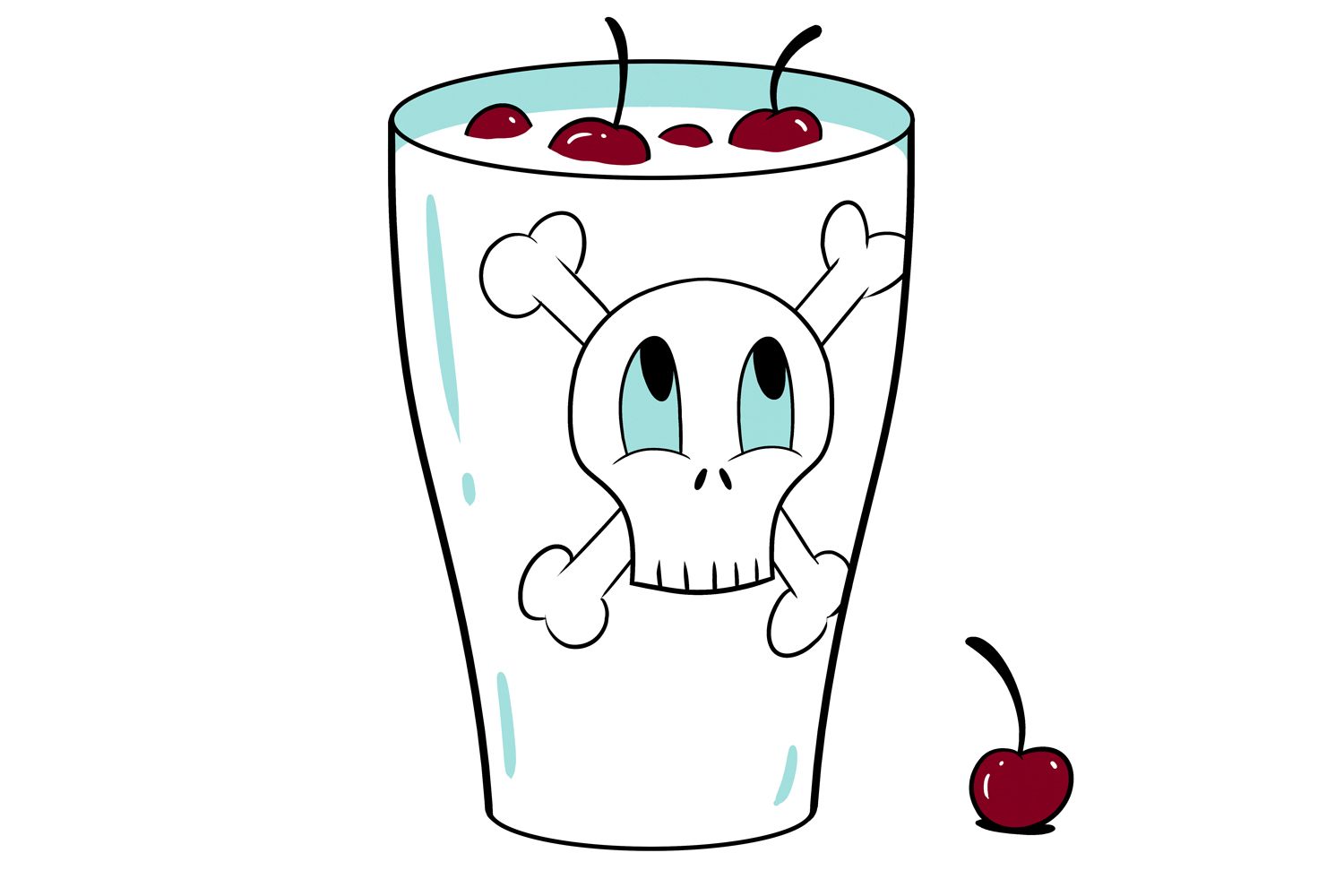
Milk Doesn’t Go With Anything
“You should not drink milk when eating tomatoes. It was an old family belief. The idea was that the acid in tomatoes would curdle the milk and cause you stomach distress. I didn’t mind because that belief meant I could have a glass of juice or soda when we had spaghetti for dinner.” — Mary Gow, Brooklyn, New York
“Cherries and milk are poison. I must have been about 6 or 7 when I first heard this one. It was common knowledge among the kids in my neighborhood. We all believed the two were deadly poison when combined. And some of the kids in school claimed they knew somebody who heard it from someone that a third grader once dropped dead in the school lunchroom when he dropped some cherries into his carton of milk and drank it. One summer, my brother and I were visiting our grandparents. One morning my brother got mad at me and dropped a couple of maraschino cherries into my glass of milk. I drank most of the milk before I found the deadly fruit. The oft-repeated family story states that I went hysterical when I found them. My grandma laughed and told me that I wasn’t going to die. To prove her point, she drank the rest of the milk and ate the cherries. My grandpa scolded her, ‘Now, Ruth, don’t go drinking poison in front of the children! You’ll give them ideas!’” — David Hall, Spokane, Washington
“Not absolutely sure where this comes from, but my mom apparently believed that you can’t drink milk with fish. She would serve battered fish fillets with mashed potatoes and peas, and at that meal we’d get cola to drink instead of milk. I never really heard about it except that my mom wouldn’t serve milk when we had fish. As I grew older, I decided it was a kind of derivative of 1) the culinary tradition that cheese doesn’t mix with seafood, and 2) popular misconceptions of religious dietary practices during Lent (we weren’t Catholic, but local restaurants would have Friday fish specials during Lent).” — Karen, Indiana
“If you drink milk while you have a fever it will curdle in your stomach. I lived in West Virginia for two years and heard a lot of superstitious stuff. Working in a hospital I couldn’t believe how many of the more educated medical people still lived by this rule.” — Tara Oakes, Albuquerque, New Mexico
Perils of the Sea
“The ‘R’ rule for shellfish (i.e. don’t eat shellfish in months without an ‘R’). This stemmed from eating raw oysters and worries about red tide and spawning season, but it is all but obsolete in the modern world. Red tides are closely monitored, and shellfish can be processed after harvesting. My family has a summer house on Cape Cod and shellfishing is an enormously huge thing out there. It sticks with me because red tide and shellfish poisoning can do terrible things to the human body and I was always afraid of them.” — Grey Maier, Providence, Rhode Island
“You can’t eat raw oysters and drink vodka at the same time. It will kill you. An elderly woman admonished me for doing it. It’s so stupid and I am still here.” — Don Starr, New Orleans, Louisiana
“You can’t eat tuna and ice cream on the same day. Mom told me this one when I was a child. I’m 50 now… and I still cannot eat tuna and ice cream on the same day.” — David Murdock, Attalla, Alabama
“Any fish bone will kill you. Growing up in Wyoming, we ate a lot of trout. Each time, with wide-eyed fear, my mother would ominously forewarn us, ‘BEWARE THE BONES!’ as she scooped up a virtual plate of death. Apparently, she believed ANY fish bone would become lodged in our throats, so the tension would build throughout the dinner as we waited to see who would get an emergency tracheotomy. I still can’t enjoy freshwater fish.” — Kris Weaver, Seattle, Washington
Bread and Hair
“Burnt toast will put hairs on your chest. My auntie told me.” — Gillian Browne, Scotland
“Eating your sandwich crusts will make your hair grow curly. My nan and my mum always told me this as I had the straightest hair ever and would have loved to have had curly hair. Needless to say, I still have the straightest hair, despite many thousands of crusts eaten over the last 30 years!” — Sinead B., Truro, United Kingdom

Cookie Dough Disasters
“It’s dangerous to eat raw chocolate chip cookie dough and go outside in the heat. The dough will cook in your stomach and rise and your stomach will expand, or worse… [I heard this] from a knowledgeable and wise 6-year-old who shared this important information with me when I was 4 years old. Clearly this kind of important information stays with us for life!” — Wendy Merron, Wayne, Pennsylvania
“Raw cookie dough will give you worms. My grandma warned my dad and he made sure to try to protect me from the dangers of raw cookie dough. I was willing to take the risk and still eat it.” — Shawn Clark, Michigan
Stay Out of the Water
“According to this myth, after having lunch on the beach, you have to wait at least a couple of hours before taking a bath (either in the sea, in a lake, in a bathtub, etc.), otherwise you’ll potentially die by congestion. Some say two hours, some say three, some say exactly two and a half. It’s something that all Italians have heard at least once in their life, from their mothers during summer holidays at sea. If it was real, each summer there would be lots of casualties on Italian shores.” — Pietro, Italy
“Tap water has fleas in it. My German grandma warned me never to drink water straight from a tap as it had fleas in it! Years later we holidayed in a cottage in the Lake District and there was a note saying, ‘The water from the kitchen tap comes straight from a spring on the hill above and may have sweet water shrimp in it. These are completely harmless and are a sign the water is super clean.’ It made me wonder whether someone had shown my granny a picture of these microscopic critters and traumatized her for life.” — Renate Watts, U.K.
“You can’t go swimming for 30 minutes after eating. When I was growing up, and went to the beach with my family, there was a strong admonition not to go into the water for 30 minutes after eating or you would get cramps and drown. Apparently, the human body had to focus on digesting the food and was not capable of surviving even wading into the surf up to your knees! I’ve also heard this same myth from other families.” — Dianne, United States
Lady Killers
“You can’t can food if you are having your period. It will spoil. Grandmother told us.” — Iris Gallagher, Tennessee
“Sauerkraut detects pregnancy. My grandmother used to find out if her daughter-in-laws or potential daughter-in-laws were pregnant by having them drink sauerkraut juice. If they were pregnant it would make them sick. I don’t know where she got the sauerkraut juice. Now I see all over the internet how good sauerkraut is for pregnant women.” — Sharon Villines, Washington D.C.
“Eating chili peppers will injure a woman’s uterus. My mother and I were enjoying our first backyard planting of Shishito peppers when she said that she was not allowed to eat chili peppers when she was growing up on her uncle’s farm. Her male relatives told her that eating chili peppers would injure her uterus. I replied that they probably said that so they would not have to share the chili peppers with the women.” — Susan Hikida, Carson, California
“At summer camp, I swallowed a seed and was told I would have a watermelon baby so at 6 or 8 years old I feared that pregnancy.” — Angela, New York City, New York
“That highly spiced foods lead to an overstimulation of the emotions and in particular those associated with sex. The spicier the food, the more impure and excitable thoughts, lust, and potential violence it generates. My mother, who was a very Victorian lady, did not believe in spices beyond salt and pepper. It didn’t stick with me and I eat spicy food all the time. LOL!” — Jack Montgomery, Kentucky
“The myth that eating cabbage can help increase breast size. It’s a popular joke in my surroundings, often people give advice to eat more cabbage to girls who have an inferiority complex about their femininity.” — Anastasia, Belarus, Minsk

Good Luck With That
“Eating peanuts causes bad luck at NASCAR races. I grew up in Southern Virginia where both peanuts and NASCAR are a big thing. Apparently if you eat peanuts in the shell at a NASCAR race, it will bring bad luck to the drivers, resulting in a crash. (Or maybe bad luck to you if you’re betting…) I don’t go to NASCAR races anymore but I do still think twice before cracking open a peanut if there’s a game on TV or I’m at some kind of event.” — Tim, Miami Beach, Florida
“If you don’t eat all the rice in your bowl, you would be poor all your life and/or marry someone with acne on their face.” — Irene, Australia
“Eating black-eyed peas and cornbread on New Year’s Day brings good luck all year. I was born and raised in Texas and have heard this all my life.” — Candace, Dallas, Texas
“Eating sushi on a rainy day is bad luck! I discovered sushi in 1999 while at university. I quickly became obsessed and began eating at sushi restaurants several times a week with my roommate. One day, we invited a third friend to join us. She was horrified. She said she couldn’t do it because it was raining, and it would bring bad luck to us all. And anyway, how could we eat ‘barely dead fish’ when we were surrounded by water? I never figured out the origin of this myth, but I also was never able to forget it!” — Catherine, Bologna, Italy
“If you eat peas and greens on New Year’s Day, you’ll have money for the rest of the year. If you don’t eat them… no money. My mom cooks peas and greens every New Year’s Day and always tells everyone to ‘at least take a bite’ or else we won’t have money in the New Year. As a person who despises peas and greens, I’ve always refused to eat them despite my mother’s warning. I don’t think she really believes in the old wives’ tale, but it’s a Southern tradition that she’s always participated in.” — Angela, Sylacauga, Alabama
“Eating pork and sauerkraut on New Year’s Day assures good luck for the following year. This was my entire family’s New Year’s Day ritual, begun by the Pennsylvania Dutch in my area. This was a fine ritual until I discovered drinking alcohol in large quantities on New Year’s Eve as a young adult. After that, I began my own ritual of eating chicken noodle soup on New Year’s Day in the hope that my tradition would bring me good luck, starting with assuring that the food would stay in my stomach. My great grandparents started this tradition before I was born. I still prefer my chicken noodle soup ritual which has indeed brought me luck in keeping food down each January 1.” — Kristi, Quakertown, Pennsylvania
“A loaf of bread placed upside-down is bad luck. My mother was neurotic about this. If we carelessly left a loaf of bread sitting upside-down, she would damn near race to the kitchen to correct it.” — Ryan Johnson, Los Angeles, California
Persimmon Madness
“Growing up, my mom frequently warned me: never eat persimmons and crab together or you will die! I thought it was an odd combination, probably one I would never come across. Still, I always looked out for it when eating out at restaurants, so I could warn them the same and demand it be removed from the menu.” — Clover Oak, Los Angeles, California
“If you cut open the seeds of a persimmon along its ridge (not an easy task) and open the seed from top to bottom like a tiny book, inside there will be one of three little white shapes: a two-tined fork, a spoon, or a knife. These shapes foretell one of three outcomes for the coming winter. The spoon represents a deep, snowy winter (lots of shoveling, hopefully not with a spoon). The fork represents a winter of mixed snow and ice and rain, basically a winter that can’t decide what it wants. And the knife signifies a winter so cold that it ‘cuts.’ My great grandmother told me this myth when I was a little girl, and every year we cut open the seeds to foretell the coming winter conditions. We find it to be true more often than not.” — Bee Phillips, Maryland
“That eating persimmons will give you bezoars. A friend of our parents used to tell my dad this, but she pronounced it ‘bay-sores.’” — Jeff Miller, Colorado

Gumming Up the Works
“If you swallow that bubble gum it will give you gas and you will blow bubbles out of your butthole. My mother [told me that]. I remember everything my mother told me not to do that I did anyway. Most all of it involved the butt and the belt.” — Frank, Alabama
“Gum stays in your body for seven years. I had heard it at a very young age, but when my grandfather once asked me, ‘Where’s your gum?’ and I told him I’d swallowed it, he put his finger on my abdomen and said, ‘Well, we are going to have to go right in there and get it.’ Wouldn’t be concerning to most, but my grandfather happened to be a surgeon!” — Bart, Minneapolis
“If you swallow your chewing gum it will tangle itself around your ribs and you will be a hunchback for the rest of your life. My mother [told me]. It sticks with me because for years if I accidentally swallowed my gum, I would worry for days. Until I grew old enough to realize that it was just an old wives’ tale. Even now at 61-years-old, the memories of my mother having a panic if I swallowed gum stay with me.” — Baxter Clark, South Africa
Proof That Almost Anything Can Be Mythologized
“Tapping a soda can stops it from fizzing over. This seems to be a universal one, but I first heard it in primary school. As far as I can tell from my research, there may be a physical reason why it might work, but in practice, it definitely doesn’t. This doesn’t stop everyone I know from always tapping their drinks beforehand, convinced that a shaken can will be rendered inert before opening, usually with messy results.” — Graham Moore, Toronto
“My great grandmother use to scream at the tamale pot when she was cooking them. This is supposed to help with the cooking to have delicious tamales! My mother told me this story and I think it’s great to keep those curious anecdotes alive.” — Edgar Santos, Mexico
“Eating too much lengua (cow’s tongue) will result in verbal incontinence. My best friend’s family, immigrants from Mexico City, always told me this food-related myth whilst gorging myself on lengua tacos. I have verbal incontinence regardless, so it may not be a myth after all.” — John B., United States
“French fries take two weeks to digest. I read in one of my mom’s quack diet books that it takes two weeks for your body to digest french fries. I recall staring down a plate of fries and finally deciding that two weeks of carrying this stuff around was very worth it. I believed this myth for about a decade until I mentioned it to a friend in nursing school, who challenged me to read any kid’s book on digestion and get back to her. Can’t believe it took me that long to figure it out!” — Camille G., Texas
“That the haggis, Scotland’s national dish, is actually a small animal that lives on hillsides in the Scottish highlands. According to the myth, the wild haggis has two legs of uneven length, allowing the haggis to easily run around the hillside and retain balance. I had a summer job at university working in a kilt shop in Edinburgh. The shop was packed with tourists through the summer months due to the Edinburgh Festival. We stocked all kinds of souvenirs, including stuffed ‘wild haggis’ toys for children and other merchandise featuring the wild haggis. My colleagues and I would occasionally relay the myth to customers, some of whom left the store still unaware of the truth.” — Iain Shaw, St. Louis, Missouri
“Using hot water makes ice cubes freeze faster. Grew up with grandmother swearing by this! If nothing else I figured it killed any germs in the water.” — Taryn, Springfield, Oregon
[Editor’s Note: As many of our readers have pointed out, under certain, specific circumstances, warm water can freeze faster than colder water. This phenomenon is known as the Mpemba Effect.]
“I actually have two. One is that the specks in vanilla ice cream are actually dirt. The other is that the balls in tapioca pudding are actually fish eyes. I had a big brother who liked both of these foods and he told me those stories so I wouldn’t eat them, leaving more for him.” — D. Campion, Thailand
Responses have been edited and condensed for length and clarity.
Gastro Obscura covers the world’s most wondrous food and drink.
Sign up for our regular newsletter.



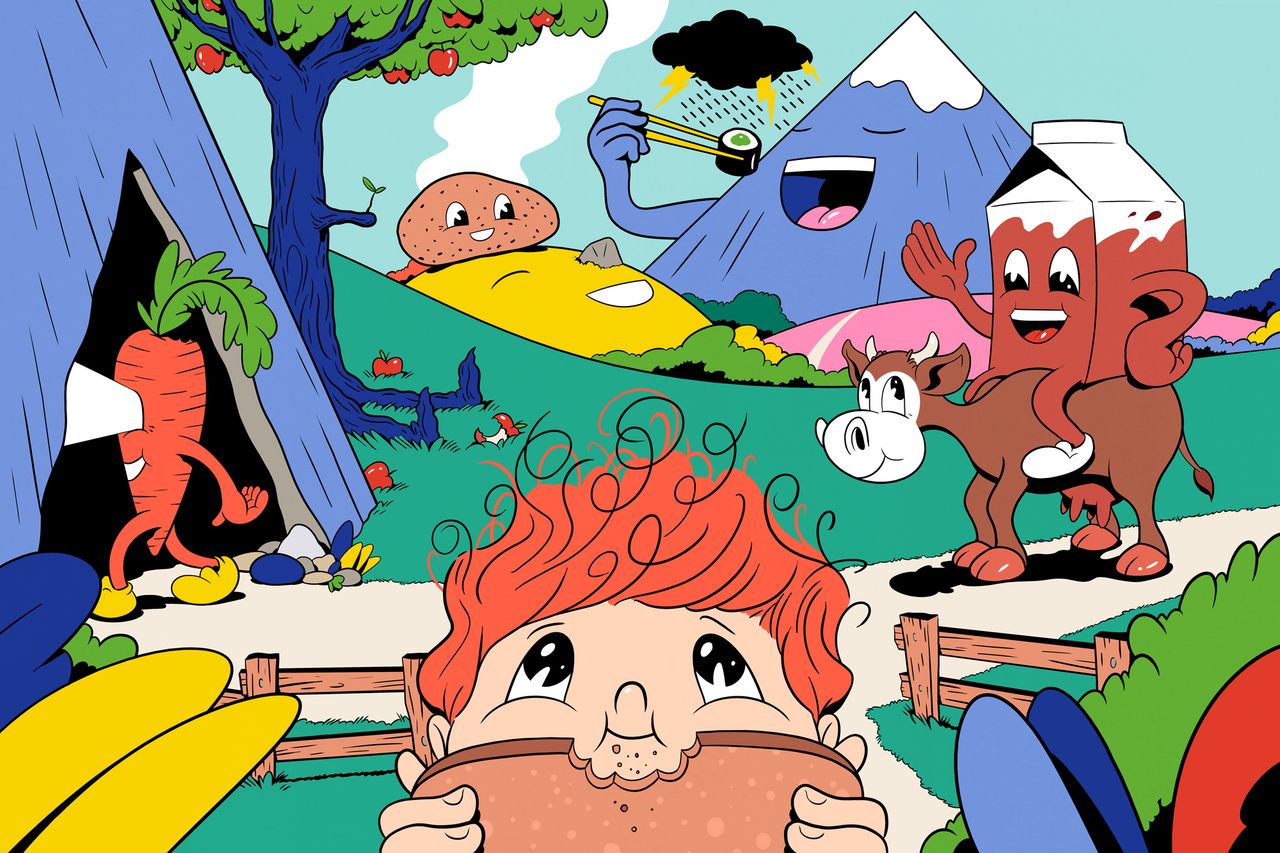


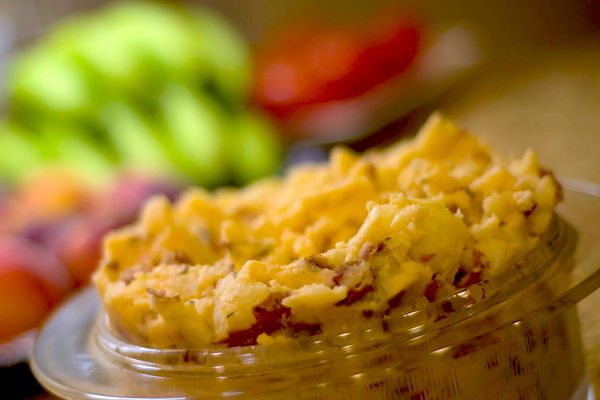
















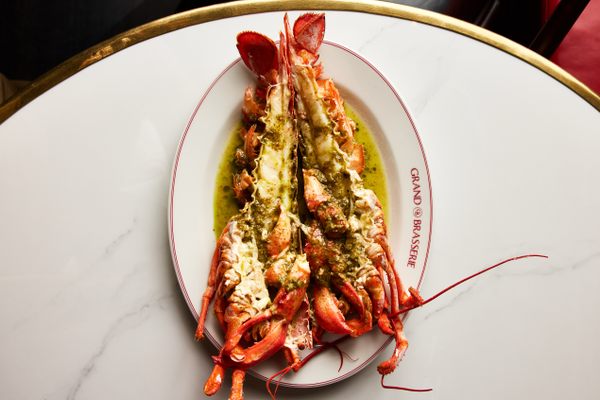


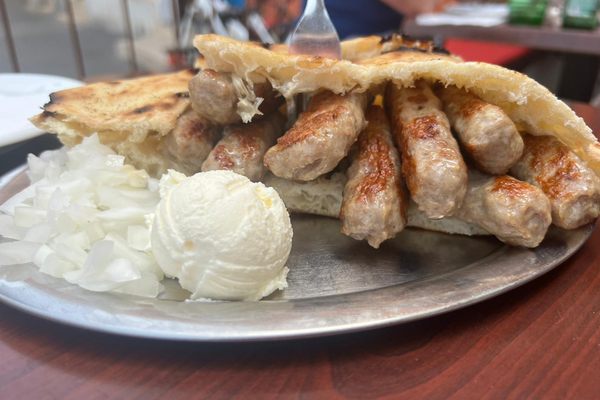



Follow us on Twitter to get the latest on the world's hidden wonders.
Like us on Facebook to get the latest on the world's hidden wonders.
Follow us on Twitter Like us on Facebook